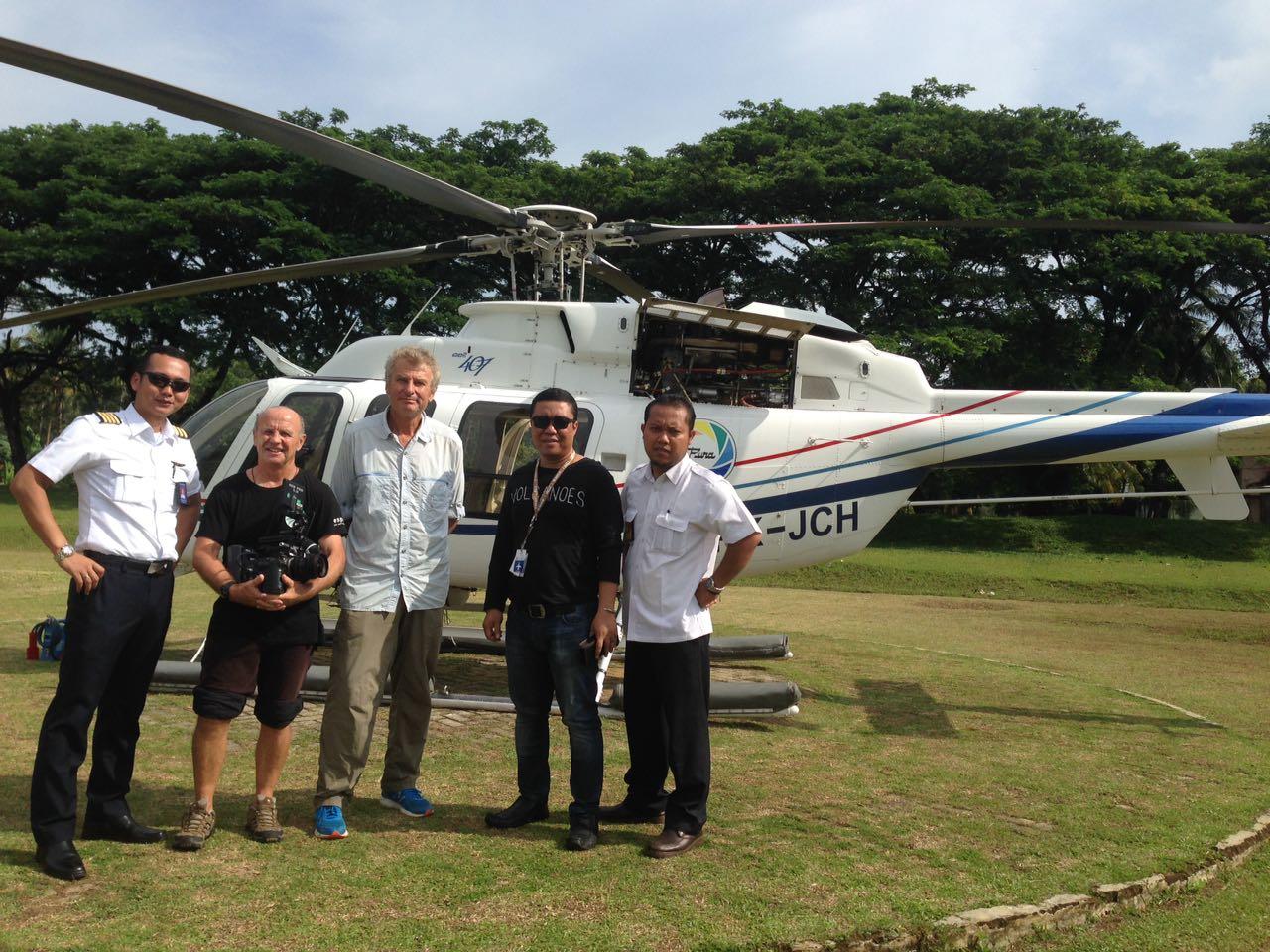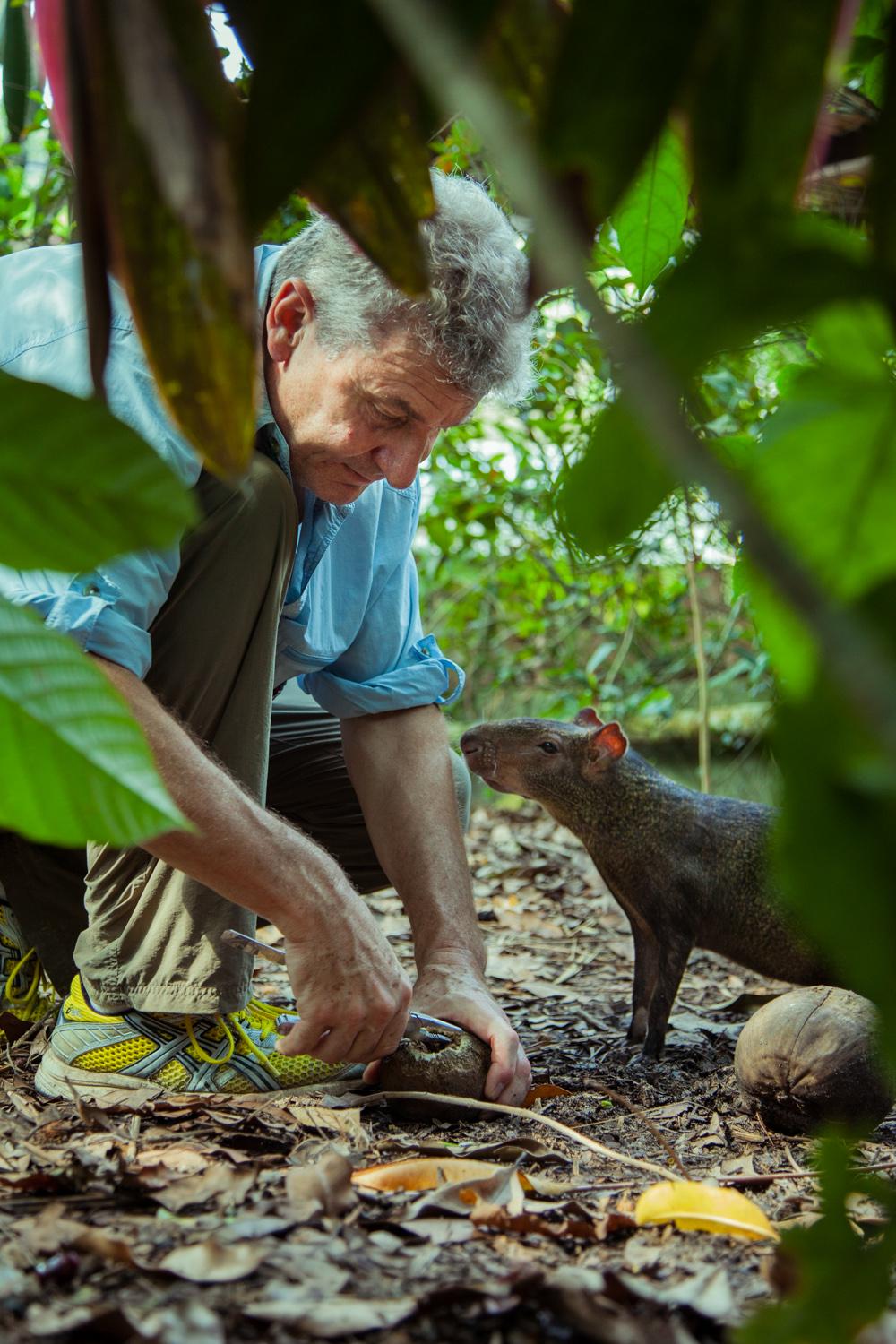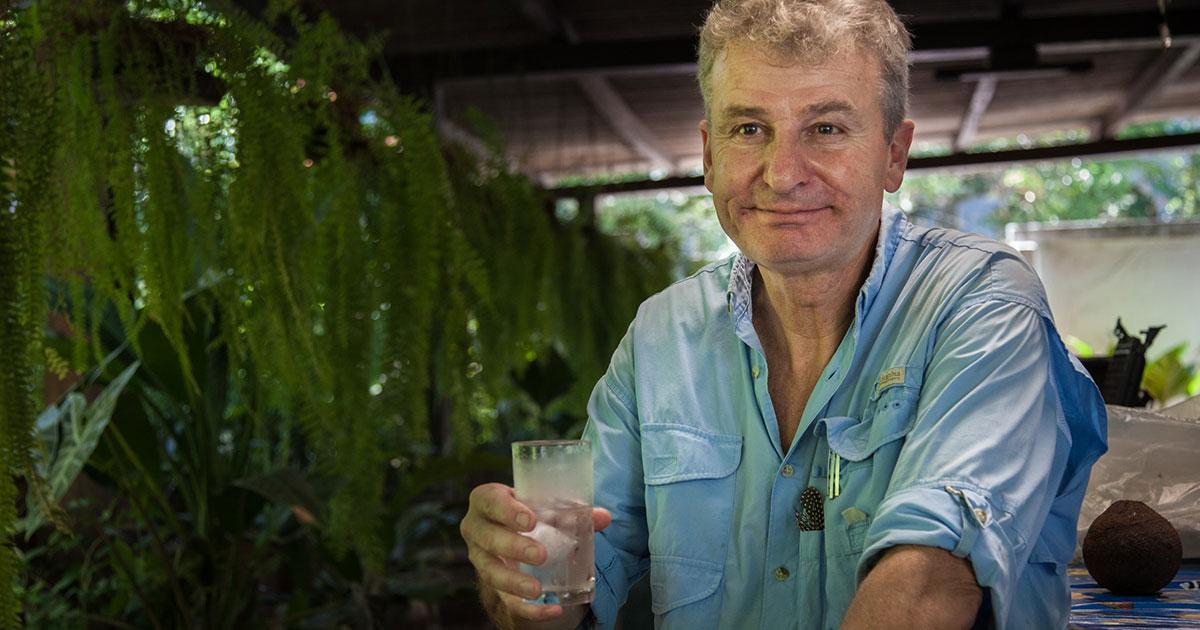Paul Reddish joined the BBC from Edinburgh University in 1981 as a TV researcher, working his way up to Series Producer. In 1997, he left the BBC to set up his own company, Free Spirit Films.
Paul has been Producer and Director across several high-profile natural history films and series including Attenborough in Paradise, The Future is Wild, Hummingbirds Jewelled Messengers, and many more. He has also worked with Sir David Attenborough on several occasions, and was part of a team to be nominated for a BAFTA Award in 2017 under ‘Best Specialist Factual’ for Attenborough’s Life That Glows (2016).
As well as producing individual shows, Paul is an author (Spirits of the Jaguar), and in 2016, he was appointed to run the National Film and Television School MA in Directing Natural History and Science.
 ECO: How did you come to work for the BBC as a TV Producer?
ECO: How did you come to work for the BBC as a TV Producer?
“I have always been interested in nature and wildlife; ever since I was a tiny kid. I studied psychology at university, specializing in animal behavior. I am still as passionate and curious about the world as I was when I was three years old: my mother found me with my head inside an ants' nest! While I do a little less close communing with ants these days, I can watch wildlife for hours, bewitched by the behavior, enthralled by the beauty. I’m always trying to understand what is going on.
“I actually wanted to be a scientist. But then a BBC science film crew arrived at my university to film my professor while I was doing postgraduate studies. I immediately realized what a great job a film/TV director has, combining science with art and story-telling. So, I applied for a job with the BBC, and the rest is history.”
ECO: Can you describe a typical day at work?
One of the great things about the job is -- there is no typical day. And there are no standard films. They all have different challenges. Days can vary from researching an idea -- is there a story and film here? -- to viewing raw footage; have we got the shots we need for a sequence -- to filming in the wild, anywhere on the planet.
“There are also days of writing scripts and commentaries, sitting with an editor to rework and improve sequences, meeting experts, and talking with composers. It's one of the most varied jobs I know.”
ECO: How do you choose which stories to tell?
“I read a lot, check websites, talk with scientists…. I find ideas can come from anywhere. “Sometimes you are asked to make a film or series on a subject, but for the most part, producers and directors come up with ideas. I like stories that have a scientific revelation. Something with a ‘WOW!’ in it that hopefully will intrigue and amaze the audience, and make them see science in a positive light.
“Nature is full of astonishing animals and amazing behavior, and it is scientists who make the discoveries. I like to think our role as producers and directors is to carry the story to a bigger audience.”
ECO: How has the digital age affected your profession?
“In many ways, the digital age has made film making a lot easier. To an extent, anyone can now make a film. Cameras are cheap and easy to use. You can edit on a laptop. But you still have to have a story, and somewhere for it to be seen and heard.
“Today, that doesn't have to be the BBC or Channel 4, it could be YouTube, so again the digital world can make life easier. But credibility and trust are important. Most 'social media' and internet sites suffer from a lack of trust.
“There is now an opportunity for stories that wouldn't suit mainstream broadcasters to get viewed on specialist channels, that concentrate on conservation, science or history. The digital world's impact has been both good and bad.
“In a different way, digital camera and sound recording have made TV more like the cinema. Ultra-High Definition has 16 times more detail than standard definition. So, you can project it like cinema, or just have an enormous flat screen TV at home. And sound can now be mastered in sophisticated surround-sound systems, again, to give you that cinema experience.”
ECO: What tips do you have for communicating to such diverse audiences?
“First, know your audience. Is it general or specialist? Is it BBC1, BBC2 or BBC4 or more niche? Have a story you want to tell, and never underestimate the intelligence of your audience - don't talk down or dumb down - but never assume their knowledge. It is up to you to convey the information, tell the story in an accessible and entertaining way. That's the job!”
ECO: Do you have any advice for people wanting to work in the media sector?
“There are an awful lot of people who want to work in media, and specifically science or natural history TV. No surprise there; as it does look wonderfully glamorous. But it's not, of course. My advice is to find out about the nature of the job, decide whether it really is for you. Flying around the world may seem fun, but standing in thick, smelly mangrove mud isn't. Spending as much as six months to a year away from home and family doesn't work for everyone.
“You should really want to tell stories and communicate, as that is at the core of the job. Then start writing up ideas, collecting potential stories for film, TV or magazines. If you want to work in TV, then get some experience by applying for 'work experience' to companies that make the stuff. See if you can shoot some video and try to edit together a short, less than 5-minute, film. This not only proves you've got talent but also genuine enthusiasm for the job.”
 ECO: Do you think formal training is necessary to succeed in the field?
ECO: Do you think formal training is necessary to succeed in the field?
“No, it's not necessary; though it can help. Some universities offer postgraduate MA courses in wildlife and science film-making. University of Salford and UWE are two, and the National Film and Television School runs a 2-year MA which I teach, and so will now shamelessly promote!
“My more general advice is that an undergraduate 'media' or 'film studies' course is really not necessary or helpful; better to have a good science degree. Furthermore, evidence of real interest in science and wildlife film-making is more important still.”
ECO: How can scientists work better with the media to promote their research?
“I'm not sure I'm qualified to answer this. It's down to individual scientists and their priorities. Do they value their work being better known and understood?
“Some scientists enjoy talking about their work; others would rather just publish to colleagues and get on with more research. I am not judging; but the old adage that, "you can lead a horse to water, but...." definitely applies. Making a film about a science topic, a scientist or their work takes time, so any scientist involved have to accept that their precious time will be given over to the filmmaker. In return, the filmmaker should make absolutely clear the nature and style of the film. This way trust, all-important trust, can be built up.
“In addition, it does no harm to have a little black book with any and all the media contacts you can muster. Often a phone call about a new discovery can get an immediate response in the papers. Radio is often as quick to react, while poor old television takes a little longer due to the 'inconvenience' of having to gather and edit pictures!”
Interview by Dr Laura Michie





